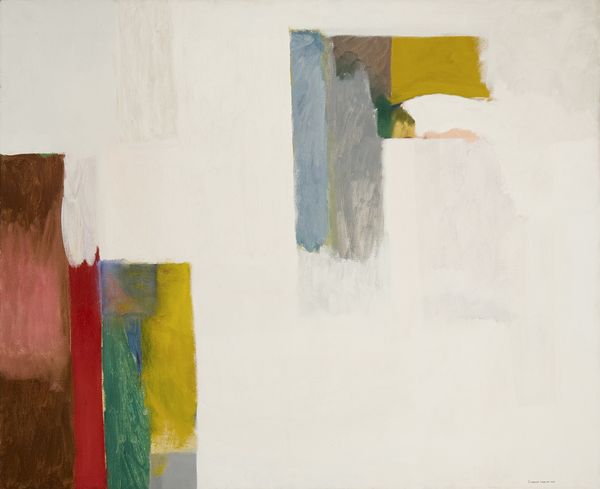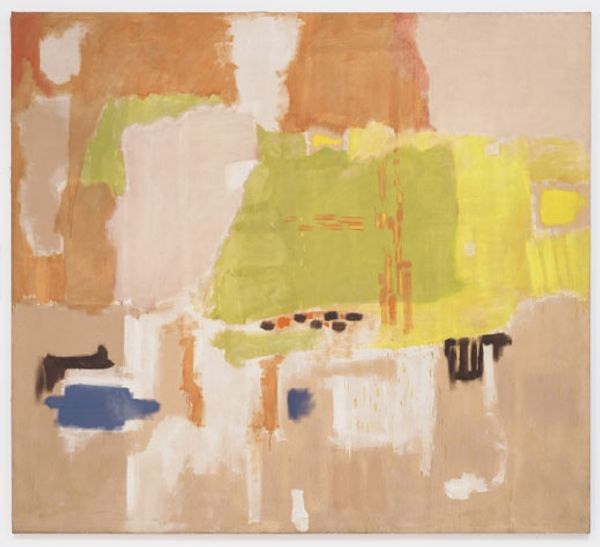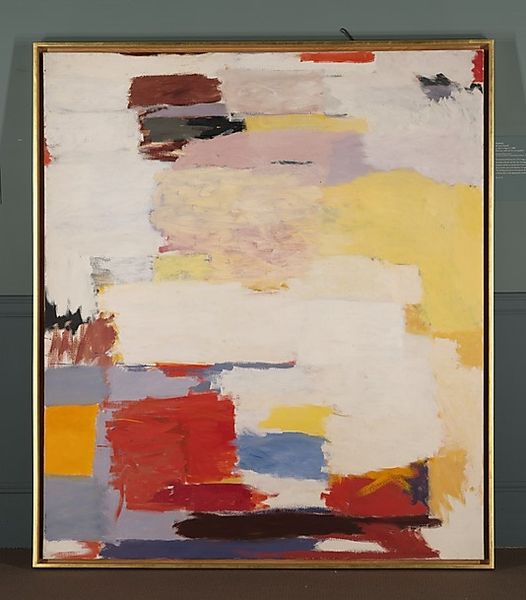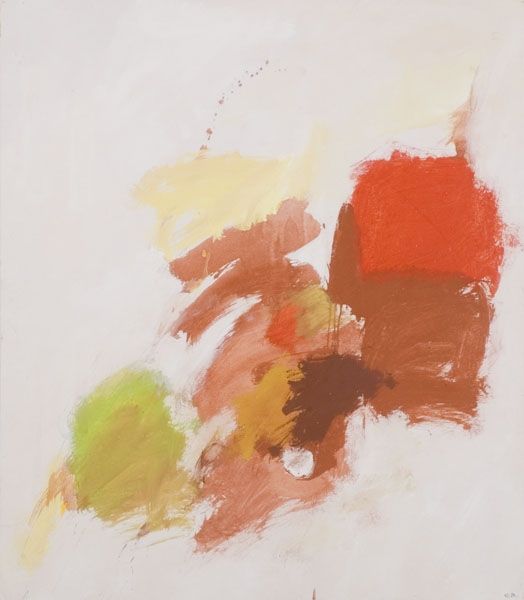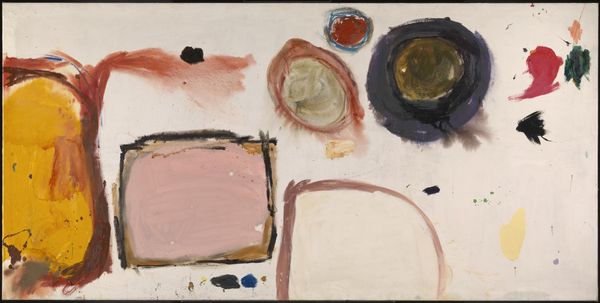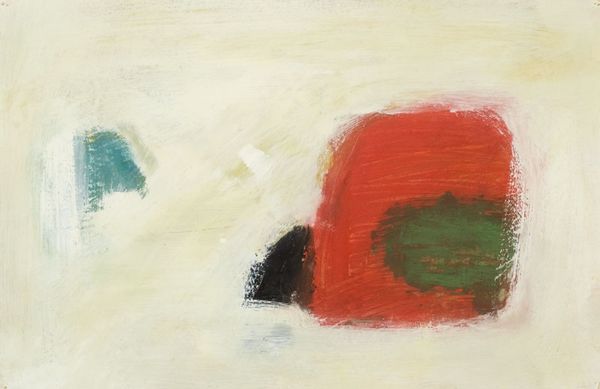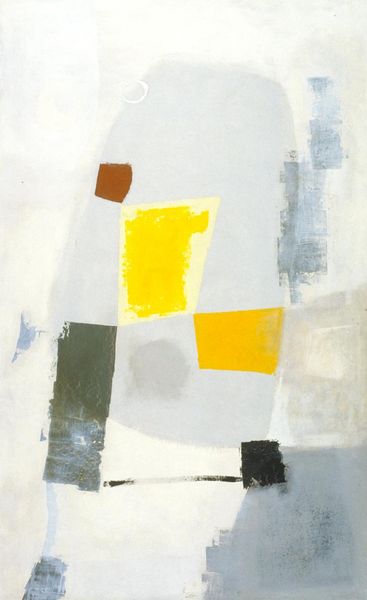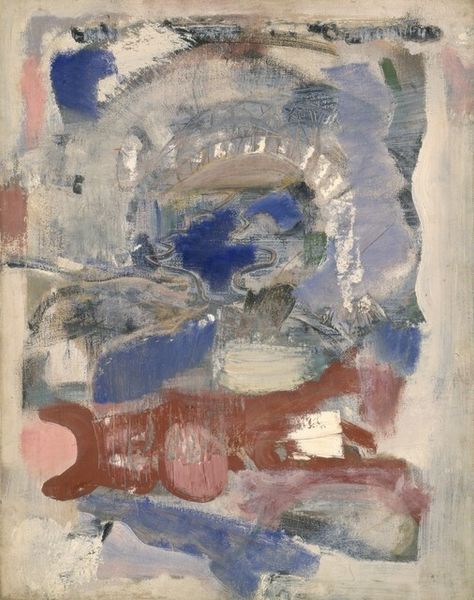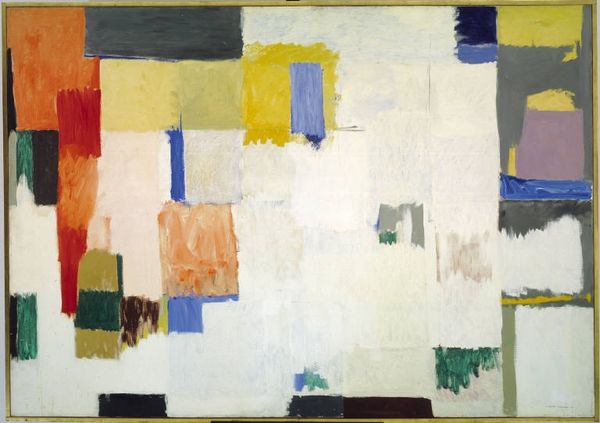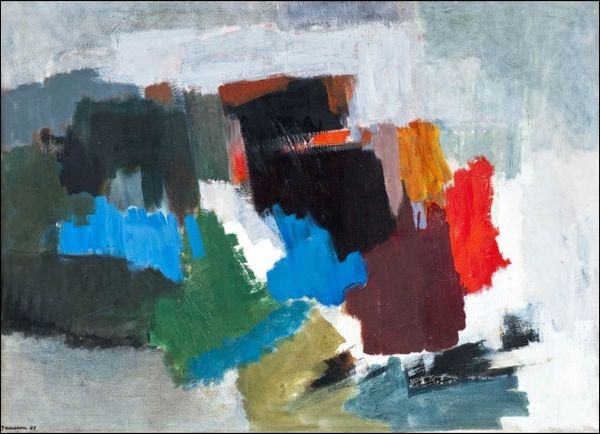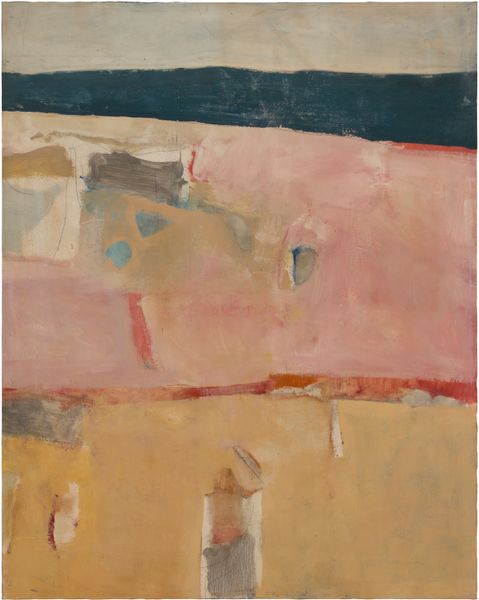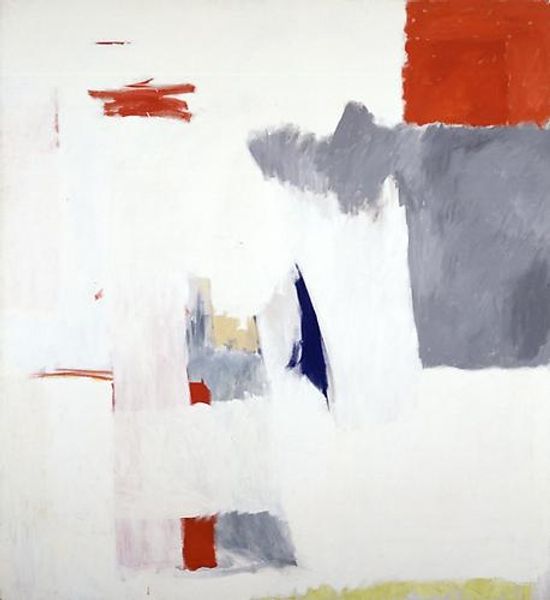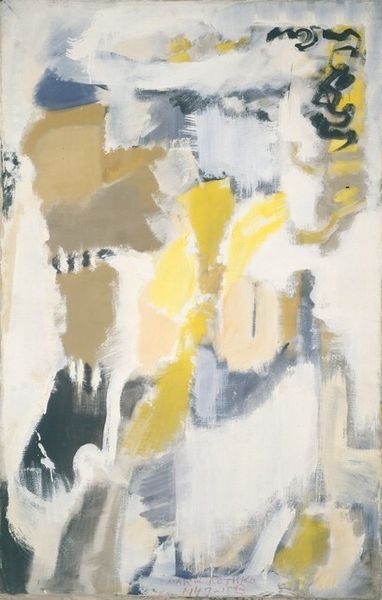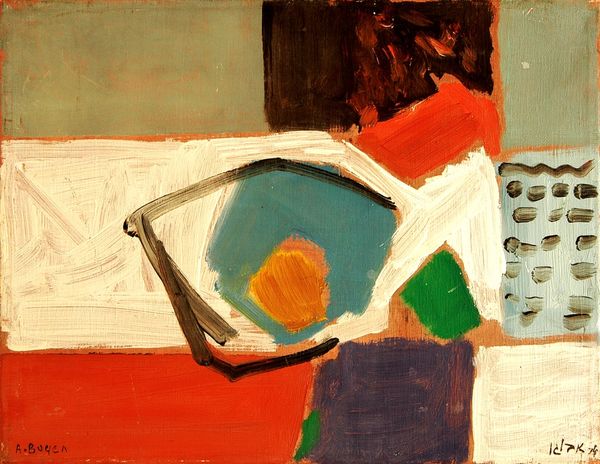
painting, acrylic-paint
#
abstract-expressionism
#
acrylic
#
painting
#
acrylic-paint
#
form
#
oil painting
#
abstraction
#
line
#
modernism
Copyright: John Ferren,Fair Use
Curator: John Ferren's "Ski," created in 1952, presents us with a compelling example of Abstract Expressionism. It's an acrylic on canvas piece that, from my perspective, speaks volumes about the artistic explorations of that era. What's your initial read? Editor: It strikes me as surprisingly serene. There's an almost meditative quality to the way these shapes hover against the white ground. The palette is muted, even melancholic, and while abstract, these visual elements are very soothing to my eye. Curator: The abstraction allows for diverse readings, especially in the post-war context. The title "Ski," coupled with the dynamic, almost suspended, forms, makes me consider the idea of movement and escape—perhaps a reflection on the fluidity and uncertainty of identity in a rapidly changing world. How do those symbolic elements sit with you? Editor: Symbolically, those shapes read to me as fragments, maybe of memories or half-formed ideas. Note how some have hard edges, while others seem to dissolve. They suggest to me how meaning is built over time through accumulation and erasure. That muted red almost has an archaic quality. Curator: I agree. I would stress Ferren's connections to modernism. We need to understand his place in the legacy of abstraction. He wasn't merely creating aesthetically pleasing forms. "Ski" reflects broader societal shifts. I wonder, do the visual components speak to societal themes as well? Editor: It's possible. I see a through-line here between this canvas and cave paintings, or early cosmologies – fundamental symbols abstracted through time. They speak across periods. This gives the piece its profound, haunting affect. Curator: "Haunting" is the right word. By choosing this level of abstraction, Ferren provides us the chance to actively participate in creating the meaning behind this painting, and perhaps relate it to our own lives. Editor: Yes, and in the end, despite its modernist appearance, this image evokes a primordial landscape within our minds.
Comments
No comments
Be the first to comment and join the conversation on the ultimate creative platform.
